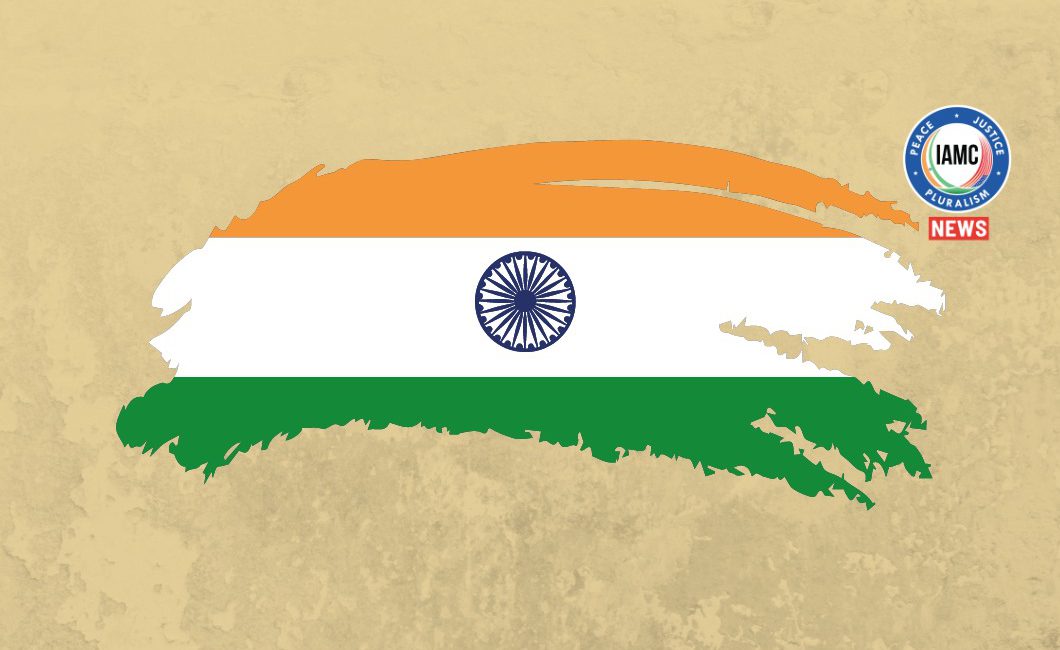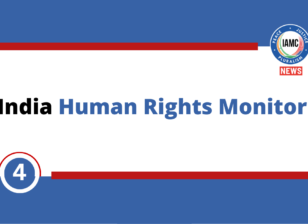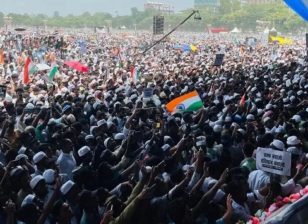Bilkis Bano challenges release of 11 Hindu extremist rapists in Supreme Court
The Indian government’s order to release the 11 Hindu extremists from life imprisonment for gang-raping a Muslim woman and brutally murdering seven members of her family has been challenged by victim Bilkis Bano in the Supreme Court.
Despite the brutality of the crime, the extremists convicted were granted remission from the state government upon approval from the Union Home Ministry, allowing them to walk free after serving only 15 years in prison.
The extremists have been welcomed with open arms by violent Hindu supremacists. One extremist group, the Vishwa Hindu Parishad (VHP), garlanded the men with flowers and served them sweets. Gujarat state Bharatiya Janata Party (BJP) leader C.K. Raulji described the rapists as having “good values.”
When she was 21 years old, Bano was attacked by a Hindu mob along with 16 other family members while fleeing Hindu extremist mob violence in her Gujarat village. Bano, who was five months pregnant, was gang-raped and brutally assaulted, along with her mother and other women in her family. Bano’s three-year-old daughter was killed when a Hindu extremist smashed her on the ground. Only three members of the family survived the attack, including Bano.
Hindu extremist mobs carried out Gujarat’s 2002 pogroms under Narendra Modi, who was then the state’s Chief Minister. Eyewitnesses report that children were force-fed petrol and then set on fire, pregnant women had their babies cut out of their wombs and thrown into flames, families were electrocuted in their homes, and groups of women were stripped, violated with objects, and beaten to death.
Israeli filmmaker stands by criticism of anti-Muslim propaganda film Kashmir Files
Israeli filmmaker and chair of the International Film Festival of India (IFFI) Nadav Lapid told reporters that he is “happy” to have criticized the anti-Muslim film “The Kashmir Files” despite backlash from Hindu extremists and the film’s director.
Lapid has doubled down on his remarks, saying, “In countries that are increasingly losing the ability to speak your mind or speak the truth, someone needs to speak up.”
“The truth is that I also couldn’t help but imagine a similar situation that might happen one day soon in Israel, and I would be happy that in such a situation the head of a foreign jury would be willing to say things as he sees them. In a way, I felt it was my duty to the place that invited me.”
Lapid added that the film “justifies the Indian policy in Kashmir, and it has fascist features.” When asked if he had enough knowledge of the situation in Kashmir to make that comment, he responded, “You can also watch films by Leni Riefenstahl, [a German filmmaker who glorified the Nazi Party], and know what you’re seeing, without being a great expert on that period.”
During his closing remarks for the film festival, Lapid had told the audience that the jury was “disturbed and shocked” by the inclusion of “The Kashmir Files,” which demonizes Kashmiri Muslims to push a Hindu nationalist agenda.
“That felt like a propaganda, vulgar movie, inappropriate for an artistic competitive section of such a prestigious film festival… In the spirit of this festival, we can surely also accept a critical discussion, which is essential for art and life,” he said.
Hindu extremist group files “forced conversion” complaint against Christians
Hindu supremacists filed a police complaint against the Christian owners of a farmhouse in Karnataka state, alleging that “forced conversions” were being carried out. The farmhouse serves as a Christian prayer hall, which the Hindu extremists have claimed is “illegal.”
“Every day, more than 200 people are brought from other parts of the state and forcibly converted to Christianty. DJ music and advanced loud speakers are being used to brainwash people,” the complaint stated.
The Hindu extremists further demanded that police force the Christians to vacate the prayer hall and remove crosses and statues of Jesus Christ that were placed on the nearby land.
Christian places of worship are subjected to judicial harassment and physical threats as Hindu extremist allegations of forced conversions become an increasingly common tactic to persecute Christians across India.



